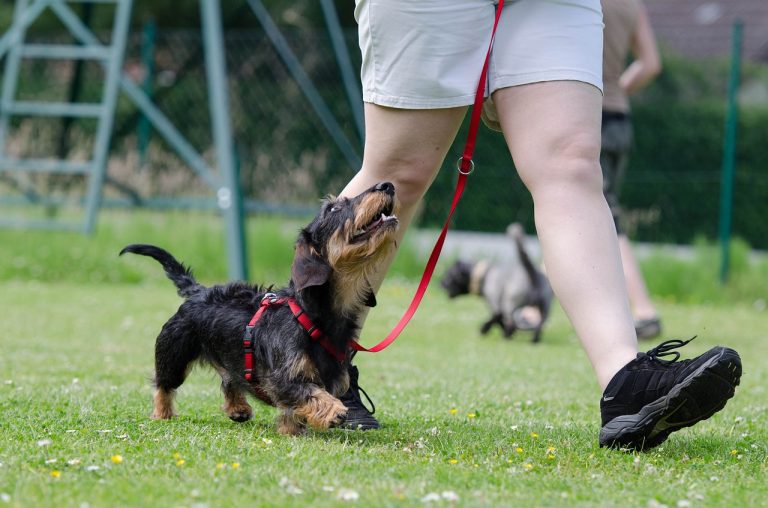Before you start house training a dog or training your dog, in general, you should take the following pieces of dog training advice into account:
- Organize routine training sessions with your dog twice a day for approximately fifteen to twenty minutes. In other words, keep the lessons short and don’t run overtime as it will be difficult to keep your dog’s attention for longer than this (especially younger dogs).
- Don’t feed your puppy before his lessons as he will work better on an empty stomach.
- Don’t give him a treat every time he gets something right as you want your dog to learn that when he performs his lessons well, you will be pleased – and when he gets it wrong, you’ll be displeased. It’s best to just give him a treat when he does something very well or at the end of the lesson – the point is that he will be eager to please you, treat or no treat. This doesn’t mean you shouldn’t praise him every time he gets something right, you should – but you don’t need to praise him by giving him a doggie biscuit every time – a simple “good boy” and a pat on the head will be enough.
- It’s a good idea to give your dog a warm-up before going to the next lesson as this will put you and your dog in the right frame of mind and should enable your dog to perform better during the next lesson.
- Don’t lose your temper if your dog gets something wrong as this will just destroy the lesson. If you feel yourself getting angry, stop the lesson and resume a bit later when you’ve calmed down. Getting angry will only hinder your dog’s development as his confidence will be shattered and he may also become fearful of you.
- Be liberal with your praise when the dog does performs well, and if he gets something wrong be understanding and use common sense when giving him a reprimand. In other words, reprimand him in the right way and do it immediately after he goes wrong. You should always follow a reprimand with a little praise technique like a simple pat on the head just to reassure your dog that you are still friends but that you still expect him to perform well.
- Avoid all distractions especially in the early stages of dog training or puppy training. Get a space where you know you won’t be disturbed by anyone else or any other dog, or by loud noises and such like.
- Don’t turn his training into a party trick for other people – the actions he learns should only be used when required as they have a specific purpose – remember that he’s your companion and friend, not some trained circus monkey!
And the last piece of dog training advice you should take right now is to enjoy the lessons yourself – they don’t have to be as difficult as you brain might be telling you – and as your dog gets better with each lesson the next lesson will become even easier and more enjoyable – you’ll find house training a dog to be a walk in the park in no time at all, pardon the pun!
